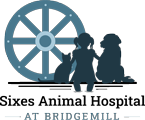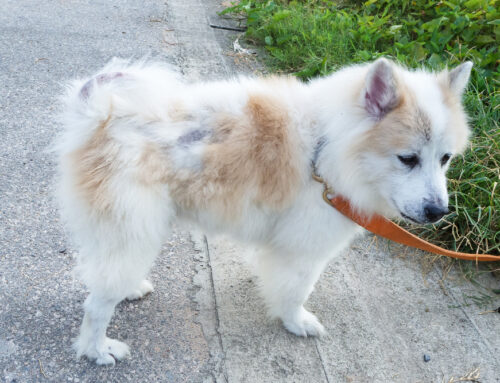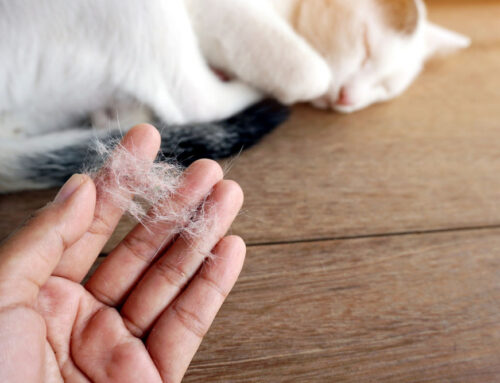The starlets of canine America, French bulldogs have been the most popular purebreds for two years running, with more than 206,000 American Kennel Club (AKC) registrations to their credit since 2022. Unfortunately, breed-specific health issues have stolen some of the glow of their glamour. Fortunately, Frenchies’ newfound celebrity has focused attention on unethical breeders who favor these dogs’ charming looks over their health and comfort and responsible breeders and organizations are prioritizing that French bulldogs be as physically sound as they are cute.
If you own a Frenchie, you’ll likely need frequent veterinary visits to keep them in peak condition. Our Sixes Animal Hospital at BridgeMill team loves Frenchies, too, and we want to offer our tips about the best possible care for your French bulldog.
Common health issues in French bulldogs
Health problems that frequently trouble this breed include:
- Respiratory issues — As a brachycephalic (i.e., flat-faced) breed, French bulldogs can find breathing difficult, because they are limited by their short muzzles and narrow airways. If their respiratory issues are so severe that they interfere with their everyday life and ability to exercise, they may need surgery.
- Heat sensitivity — This issue is also the result of your Frenchie’s flat face. Their breathing difficulties make it essential that they stay out of the heat to avoid heat exhaustion or heatstroke. Keep your dog inside on hot days and limit their exercise to avoid overexertion.
- Mobility problems — Frenchies are subject to two orthopedic conditions (i.e., hip dysplasia and degeneration of the discs between the vertebrae) that can cause pain, lameness, and mobility limitations that can affect their quality of life.
- Difficulty giving birth — Because French bulldogs have unusually large heads compared with their body size, birthing puppies naturally can be extremely difficult and about 80% require a Cesarean section. Veterinarians typically recommend that dogs be limited to only two or three such deliveries in their lifetime to preserve the dog’s overall health.
- Skin problems — Skin-fold dermatitis can be a problem for French bulldogs, because their facial skin folds hold moisture and bacteria that can irritate the pet and cause infection. The breed also is prone to allergies.
- Eye issues — Frenchies are also prone to congenital eye issues because of their unusual bulging eyes. Problems include corneal ulcers, cherry eye (i.e., the gland behind the third eyelid swells and protrudes as a reddish mass), and abnormal inward or outward rolling of the eyelid margin.
How to care for your Frenchie

Your French bulldog has special needs to keep them healthy and able to enjoy life, including:
- Nutrition — French bulldogs need a high-quality diet that includes one or more animal protein sources, such as lamb, salmon, beef, and chicken, as the main ingredients. The diet should also include plant-based proteins, such as lentils, peas, and sweet potato, and omega-3 supplements for a glossy coat. Watch how much your French bulldog eats, because they are prone to obesity and bloating.
- Exercise — French bulldogs are not particularly active, but they should be walked short distances. Start walking them as puppies for about 12 minutes per day, working up to 30 to 45 minutes for adults. Attach their leash to a harness, because a collar could injure their neck, back, or eyes, or cause breathing problems. A bungee leash that will absorb pressure when they pull is best.
There are many don’ts for Frenchies and exercise:
-
- Don’t expect your Frenchie to swim—their short, stocky bodies are not built for swimming.
- Don’t allow them even near a swimming pool or other water body without a life jacket.
- Don’t let them climb and jump, because they are prone to back injuries. If necessary, carry your Frenchie up stairs or provide a ramp.
- Grooming — Frenchie’s ears should be cleaned weekly, or whenever they seem dirty, with unscented baby wipes, and more deeply once a month with cotton balls soaked in a canine ear solution that your veterinarian can recommend. You’ll also need to clean your pet’s facial wrinkles and skin folds with baby wipes at least weekly to prevent infections.
In addition, bathe your French bulldog as needed depending on their lifestyle and activity level, -brush their teeth regularly with a pet-safe toothbrush and toothpaste, and trim their nails every two to three weeks.
- Behavior — Many Frenchies are stubborn and have “selective hearing,” so be patient when you train your pet. Have frequent training sessions, including urinating and defecating outside, and use positive reinforcement with treats or favorite games.
Socialization with other animals and people is important—they need to be confident in all possible situations so they learn not to be fearful or aggressive.
If you own a French bulldog or plan to adopt one, contact our Sixes Animal Hospital at BridgeMill team. We can provide more information about the breed before you decide on a Frenchie, or set up a wellness exam for the one you already own.






Leave A Comment